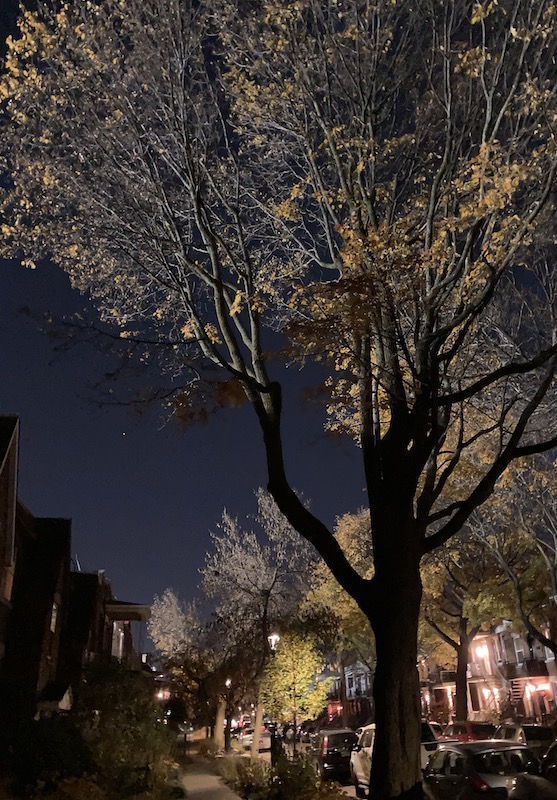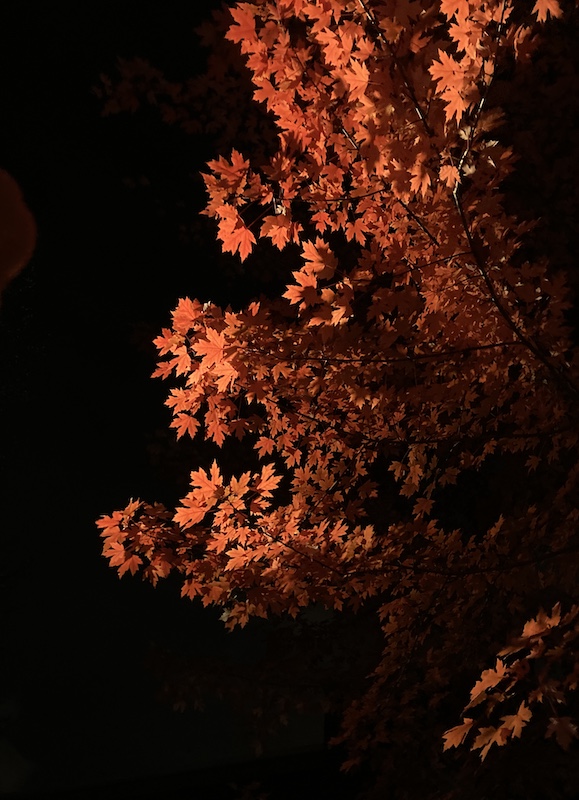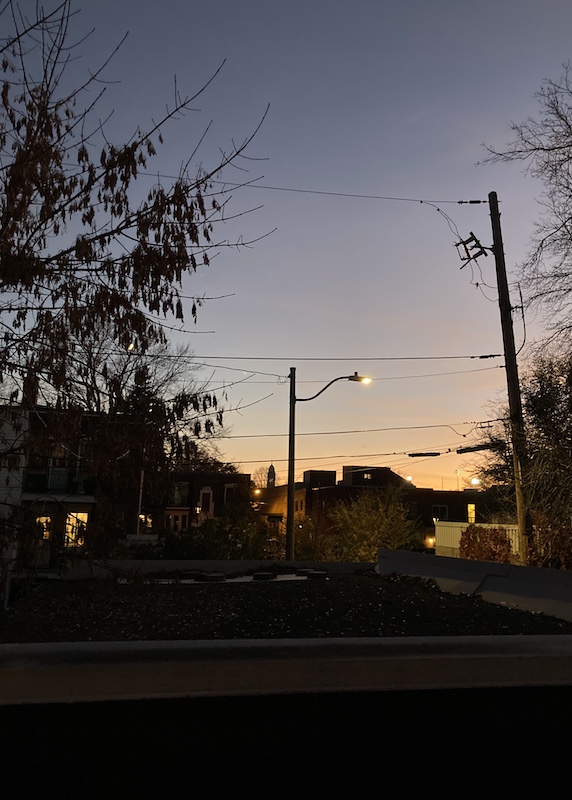Get posts by email
Situating myself on the political spectrum and the authoritarianism of the left
November 10, 2022
Welcome back to my political series. This is the fifth post in the Why have you become so political blog series.
↓ Audio recording of this post ↓

My last post explicated - analyzed and developed in detail - the core principles of my political philosophy. As it turns out, this is also a spiritual and familial/community life philosophy.
Here’s a summary of that:
Our individuality exists in a web of relationality. The goal of our being is to maximize our individual autonomy. That autonomy is supported by the greater-than-the-sum-of-its-part collective, and circumscribed by our responsibilities of care to the other individuals in the collective. The collective’s purpose is the maximal flourishing of the individuals within it. And the flourishing of those individuals is the flourishing of the collective. It’s a system where all the parts depend on each other and the overall movement is both freedom and care.
Where am I on the political spectrum?
Everyone’s on a spectrum these days. I say this in jest but also in seriousness.
We recognize (thank Goddess!) that human experience isn’t either/or, this or that. We are complex and contradictory beings. Even so, I haven’t thrown all binaries out the window. Biologically, there are definite genetic-based binary expressions, this or that. And my personal ethic has me drawing lines between right and wrong at the point of violence, exploitation, and oppression. I’m sure there are more binary and dualistic divisions I adhere to, but the point of this post isn’t to lay them all out. Just to say, binaries still exist for me in certain realms of human experience, but much less so than in earlier years.
Much of what I experience and believe about humans, including our political values, lies on a spectrum or grid. The best metaphor or representative tool to describe this escapes me. I don’t think we’ve devised one yet. But I know that humans are not simply this or that.
And so it gets very tricky to talk about my political orientation in a political system very much defined by this or that, i.e.: our polarized political culture.
I am fascinated by the research done on political values. For example, a 2011 study published in Current Biology reported that “variability in political attitudes reflects genetic influences and their interaction with environmental factors” (Kanai et al.). And further, that even across cultures actual brain mass is different in individuals with a liberal or conservative voting response.
This is mind-bending stuff. Pun intended. Here are a few more snippets from that report.
Although political attitudes are commonly assumed to have solely environmental causes, recent studies have begun to identify biological influences on an individual’s political orientation.
… greater liberalism was associated with increased gray matter volume in the anterior cingulate cortex, whereas greater conservatism was associated with increased volume of the right amygdala.
… our findings are consistent with the proposal that political orientation is associated with psychological processes for managing fear and uncertainty.

Beyond biology and psychology, Jonathan Haidt’s work in Moral Foundations Theory helps us understand the moral motivations/foundations behind people’s political beliefs and how those viewpoints will land them on different sides of the liberal/conservative political spectrum.
People come from and arrive at different perspectives for valid reasons. Their very physiology is implicated in their political orientation! Certainly, one’s psychology/personality, lived experiences, upbringing, and culture influence their political values.
And as much as I bristle at binary or dualistic distinctions, the left-right political dimension is a well-studied phenomenon, that according to Huber & Inglehart (1995), “can be found almost wherever political parties exist, but it is an amorphous vessel whose meaning varies in systematic ways with the underlying political and economic conditions.”
I’m not always comfortable with these labels, but they seem to exist for a reason.
That is the preamble to identifying myself with the left side of the spectrum, as complicated as that alignment is.

Before taking on the challenge of writing this series, I had never given this much thought to my values as related to my political alignment. But the ideas of this series were demanding to be written. So here I am, attempting to articulate my place on the political spectrum.
After growing up in a family culture of Canadian conservatism, which is to say a right of center position on a spectrum with socialist policies already built into society, I moved left in my adulthood. (At this point, I am using a left-right analysis for simplicity’s sake. The parsing of liberal and left is later in this post.)
Living in the US for over a decade contributed significantly to my political migration. In that context, the outline of my left-leaning values became more distinct, defined against the right-of-center elements of American politics and culture. My Christian values largely led this charge, the same way that a Christian ethic propelled the Social Gospel movement of the early 20th century, principles that founded the NDP party of Canada.
I landed left politically and have stayed there. And for reasons beyond, and sometimes in conflict with, a social gospel imperative. On the left side of the spectrum, I found resonance with my perspectives and values, including an emphasis on civil liberties and individual freedom, openness to change/open-mindedness, the necessity to question established authority and status quo, an ecological imperative, communitarian values and social concern, and the distribution of resources accordingly.
But...
Despite all this leftiness, I hold some typically conservative viewpoints, which put me at odds with more far-left ideology, even though I resonate with far left thinking in other aspects. Specifically, I believe in the primacy of family and the importance of religious and cultural traditions to human flourishing.
In my contemporary North American context, these are right-of-center orientations. I diverge from the underlying foundation of the conservative view, however, in my rejection of any inherent institutional legitimacy and authority of these social structures. I don’t believe that family and religion are endowed with “rightness or legitimacy” simply because they are traditions, which somehow confers on them an immutable authority. In other words, tradition or “this is the way we’ve always done it” does not confere legitimacy on a practice, as it does in a conserving (conservative) worldview.
Further, I reject the idea of these human social structures and practices being framed institutionally, which I believe facilitates the accumulation of power, through hierarchies, creating the conditions for exploitation and oppression within them. Not to mention the obvious opportunity for exploitation and oppression when a structure or organization can appeal to an “outside the system” authority like God to justify any action.
Uncritical deference and appeal to an “outside the system” authority are typically conservative or conserving persuasions.

In my political values accounting, the flourishing of the individual, the development of their freedom and autonomy, which they then have the choice to use for the benefit of their community, which in turn supports the flourishing of the individual, is what confers legitimacy on a social structure. And I believe that the family, and by extension communities, and the religious and cultural traditions of these communities provide the necessary containers, connections, and scaffolding for maximal flourishing, caring networks and relationships.
These “systems” are not fail-safe, they are quite flawed in many respects but they are, to my mind, without a doubt better at the job of caring for the individual, and therefore have the most potential for the development of the individual. Therefore, my orientation is to support, challenge, change, and revolutionize, if necessary, these relational social structures, not replace them with the bureaucratized, state-managed institutions most often championed by the left.
So I’m a complicated lefty.
There are several spaces and contexts in which I hang out with conservative-minded folks, specifically around support for families, freedom of religion, and the importance of religion in society, for the reasons I’ve just explained.
Despite these alliances and interests, I identify politically with the left of the spectrum because I am fundamentally opposed to authoritarianism and its manifestations and subsidiaries most often associated with and championed by the right. I also oppose the means of fear, division, and amplification of difference and otherness used by authoritarianism (and its derivatives) to motivate action.
And then there was a pandemic. And it became undeniably clear that the right did not hold the patent on authoritarianism.
Earlier in this series I wrote,
People’s responses to pandemic policy revealed their true political orientation. It revealed what they believe constitutes just governance. It revealed their own relationship with state authority, and the degree to which they trust those in power. It revealed their underlying ideas about how we should do life together and who gets to make the decisions about our lives.
The most chilling revelation for me, as someone who identifies with the left, was the lengths to which “progressively” oriented groups and institutions, including the ruling liberal political class in Canada are willing to go, and the means they’re willing to use to enforce their ideas on others. Especially distressing was the complicity and agreeability of Canadians to this abuse of power in a liberal democracy.
I’ve mentioned before that if I had been paying attention earlier, I wouldn’t have been so surprised. A leftist moral-authoritarian strain, what Tara Henley calls “identitarian moralism” or what Rhyd Wildermuth calls “social justice identitarianism” has been multiplying like bacteria in the petri dish of academia for years, spilling out into every sector of society. But most of that was still far removed from my everyday experience, until the pandemic.

Distinctions between left, liberal, and progressives
Before discussing my disappointment and disillusionment with the left, I need to define some terms. For the sake of simplicity, up until this point in the post, I’ve been using simplified left/right, liberal/conservative terminology. But left and liberal do not mean the same thing. The definitions of these terms are complicated by the differences between the philosophical and political meanings of the words. And the dynamic economic, political, and social conditions that change the colloquial meaning of the words in a given era.
I’m going to oversimplify this, but here’s how liberalism differs from left-ism in my own Canadian, North American context. Liberalism is a center-left position in which soft-socialism is a given, having already been established as the Canadian Way. Liberalism is also “socially” progressive, more willing to accept and advance new social norms (e.g., gay marriage), compared to the “upholding tradition” stance of conservatives.
Economically, the modern liberal stance is a neoliberal position, returning to the Adam Smith-inspired founding liberal ideas from the 19th century of free markets, deregulation, and limited government. The limited government part relates mostly to economic regulation, as Canadian liberals, both the capital-L political party and small-l values orientation, are inclined to regulate social relations.
Leftism believes that serious economic interventions, and even at the far left end, a dismantling of the capitalist economy is necessary. And because stockholders and corporations aren’t going to regulate themselves out of their constant demand for growth in profits, and the exploitation of other humans and the Earth upon which that depends, the left holds that state invention and/or worker uprising is needed. Far left positions advance political revolution for these aims.
Socially, leftists challenge specific structures, standards, and the status quo as upholding capitalist exploitation, thus contributing to inequality and injustice and preventing human progress.
The term progressive most often denotes someone in the left-of-center orientation who may identify as either left or liberal. What I don’t like about this term is that its opposite is regressive, and that’s not fair or accurate for a right-of-center position. The term progressive originates in the typically left-of-center faith in the rightness and constancy of progress.
Hannah Arendt explains the liberal vs. conservative conception of progress,
where the liberal…sees an essentially assured progress in the direction of freedom, which is only temporarily interrupted by some dark forces of the past, the conservative sees a process of doom which started with the dwindling of authority, so that freedom, after it lost the restricting limitations which protected its boundaries, became helpless, defenseless, and bound to be destroyed.
Liberals see progress as the march towards freedom. Conservatives see progress as undermining freedom, which only flourishes within boundaries.
I see truth in both these perspectives and I think progressive is a bit of a dodgy term.

I entered adulthood as a conservative, having inherited this orientation from my upbringing. I come from farmers, foresters, pastors/preachers, small business owners, entrepreneurs, construction workers, homemakers, and community builders. I do not come from a union background, nor from an intellectual, academic, political or materially wealthy class.
A conservative political outlook made perfect sense given my family of origin, layered on top of my security-seeking personality. The religious beliefs of my family culture contributed to a fear-based worldview, an orientation by no means exclusive to religion. My own experience was a fear of God’s judgement and eternal separation, and fear of “the other” rooted in a view of human nature as fundamentally fallen and deprave. Following the established religious order and authority would ensure both safety and salvation. Of course this orientation spills over into the political.
Then, as I’ve already mentioned in this post and detailed in a previous series on faith, my worldview changed, largely thanks to motherhood. This was a spiritual/religious evolution that influenced the political.
I made my migration to the left in ignorance of its roots in class consciousness and opposition to capitalism. It was an instinctual move not a theoretical one. I believe our purpose as humans is to care for another, to live like the interconnected and interdependent beings we are, and to uphold and advance each other’s individual freedom within that collective. I’ve short-handed this as autonomy, relationality, and responsibility, explained in full in my last post.
The social, ecological, and economic policy proposals traditionally put forward by the left seemed most inline with these values. Additionally, the right-of-center positions and proposals did nothing to convince me that their side was a truer expression of my values and worldview.
Earlier in this series I wrote that articulating one’s political values is hard work. Well, explaining the political landscape and nuance between positions or orientations is also quite tricky! Especially since most people hold within themselves “contrarian” positions on this political spectrum. I put contrarian in quotes because I don’t think people and their complicated viewpoints are the problem. I think trying to fit ourselves into tidy boxes, as points on a spectrum, or coordinates on a grid is the problem.
It may be that I’m not on the left at all. But neither am I on the right. Nor am I in the middle.

My pandemic analysis, through a disaffected leftist lens
The pandemic revealed a stupefying (actually terrifying) deference to authoritarianism in Canada’s liberal and left-of-center ruling political class and the population at large.
Authoritarianism as evidenced in:
- propagating and seeding excessive levels of fear,
- silencing and censoring dissenting expert analysis and policy recommendations,
- an eager willingness to use coercive means of compliance,
- policies that overrode people’s bodily autonomy and ran counter to the prevailing progressive ideas of equity and human rights oriented, non-marginalizing, and non-stigmatizing public health policy directives, and
- a push for increased state surveillance in people’s lives justified by a virus, the origin of which wasn’t even allowed to be discussed or debated, though we now have strong evidence of its lab genesis.
Regardless of the ends you’re trying to achieve, a vaccinated population for example, authoritarianism is always the wrong means to that end. I thought this was the base assumption of the side I was on. I marvel at my naivete.
I thought I was on the side working towards just social and economic relations, committed to building networks of interdependence and connections between people. I thought I was on the side of tolerance for difference which was ensured by advocating for, and upholding individual freedoms. Freedoms that have been fought for by this very “side” through the various waves of human rights consciousness raising and policy changes in liberal democracies during the 20th century.
I thought I was on the side that criticized state power and surveillance, called out corporate influence and the power of capitalism and neoliberalism in governance. I thought I was on the side that upheld free speech, after the long fight to get here. I thought I was on the side that advanced the rights of workers and labour, a side that especially analyzed and critiqued the effects of policies on the poor; advancing culturally-sensitive, equity-oriented, and non-Eurocentric research and policy initiatives.
This is really why I’m writing this whole series. I thought I was on the team advancing human rights and liberties, with a commitment to the collective care for all individuals, regardless of their status, whatever that status might be.
The pandemic response of that team, Team Progressive or Team Left, pulled the political rug out from underneath me.

Disorientation
My daze of confusion started to reach its peak in the fall of 2021. I had been in “head down, do what you’re told for the safety of the collective, and keep the family ship afloat” mode. From my side of the spectrum, I was told not to question anyone in authority whether government, media, or public health. I was told not to think for myself, but to show my care for people, for their wellbeing and my own, by doing what I was told.
Of all tyrannies, a tyranny sincerely exercised for the good of its victims may be the most oppressive. It would be better to live under robber barons than under omnipotent moral busybodies. The robber baron’s cruelty may sometimes sleep, his cupidity may at some point be satiated; but those who torment us for our own good will torment us without end, for they do so with the approval of their own conscience. ~ C.S. Lewis
As I’ve laid out clearly in a previous post, I am motivated by a care and interconnectedness of all things ethic. A year ago now, I finally woke up to the fact that this ethic was being levered by the state, and so-called well meaning people, to coerce others into action. I was being groomed to be intolerant, to exclude and demonize “the other”. All of this, from the ruling liberal class.
I am enrolled in a liberal-left institution, in a definitively left program. Did any of my professors or the faculty of my program, who are in some cases very far left, speak about dissidence to their students? Not that I ever witnessed. Thank God they were teaching me, if not modeling to me, critical thinking skills and introducing me to thinkers and tools of analysis previously unknown to me. With what they were teaching me, I could make the critique and connect the dots on my own. Written like this it sounds subversive on their part. Sadly, because of their behavior and consistent “do what we’re told” messaging in their lectures and seminars, I don’t think it was.
I took me a few months to square all this internally, especially because most of the dissenting voices were right of center and I had a hard time trusting them. A natural tribal impulse amplified by our culture war and polarizing politics.
Thank Goddess, my family of origin is largely conservative and so I have conflicting tribal alliances. Diversity for the win. I trust my family with my life and know them to be good people. This helps keep things in balance.

Finally, the dam broke in January of this year when Canada’s Liberal government, its leftist cronies, and the corporate-media gaslit me and my experiences, labelling me and my loved ones racists, misogynists, and fascists for supporting people’s bodily freedom and protesting against state overreach in pandemic policies. It was only then, many months too late, that I finally became aware of the voices on the left that had been censored and silenced, by the left, in their criticisms and analysis of pandemic policies and approved discourse.
Policies that were unjust socially and economically. Policies that caused incredible suffering for families and children in developing nations. Discourse that intentionally amplified fear, while silencing and ridiculing dissent to enact compliance. Policies that levied economic sanctions against individuals, taking away their right to work. A discrimination experienced most keenly by workers and labour who are not a part of the ruling lap-top class.
Policies that undermined networks of interdependence and connections between people. Policies that threatened freedom of religion. Discourse that advocated for intolerance and “othering” one another. Policies squarely aimed at the takedown of individual freedom and bodily choice. Policies that applied a “one rule fits all” standard. Policies that advocated and enhanced state surveillance.
And where were the liberals and leftists through all this? They were literally masked, silent, and compliant. And actively canceling anyone from their own side who dared contradict them!
I have been disoriented and dislocated at multiple points in my adult life, this is another one, and it’s why I have to write through this. I have to work my way to the other side of this disillusionment and find my footing once again. I have to find the place I will put my heart and energy in my own quest to build, support, and advance the flourishing of life. All life, not just the lives that agree with my political position.
Crisis is a time when truth is revealed. The pandemic revealed an unmasked corporate and state sponsored authoritarianism, under the guise of liberal leadership, with left support and complicity.
The progressives revealed their hand at the tactics and strategies they’re willing to employ to enact compliance of the masses to policies set by an expert, corporate-run, technocratic, and elite class. And I don’t want any part of it.
Stay tuned for my next post in this series, draft titled: Our so-called democracies and the manufacture of consent.
Subscribe to my mailing list for free, to get these posts delivered directly to your inbox.
References:
Arendt, H. (1961). Between Past and Future: Six exercises in political thought. The Viking Press.
Kanai et al. (2011). Political Orientations Are Correlated with Brain Structure in Young Adults. Current Biology. (21). DOI 10.1016/j.cub.2011.03.017
Schwartz, S. & Davidov, E. (2011). Basic Personal Values and the Meaning of Left‐Right Political Orientations in 20 Countries. Political Psychology. 32(4). doi: 10.1111/j.1467-9221.2011.00828.x
Filed Under
Part of Series
You can subscribe to comments on this article using this form.
If you have already commented on this article, you do not need to do this, as you were automatically subscribed.





